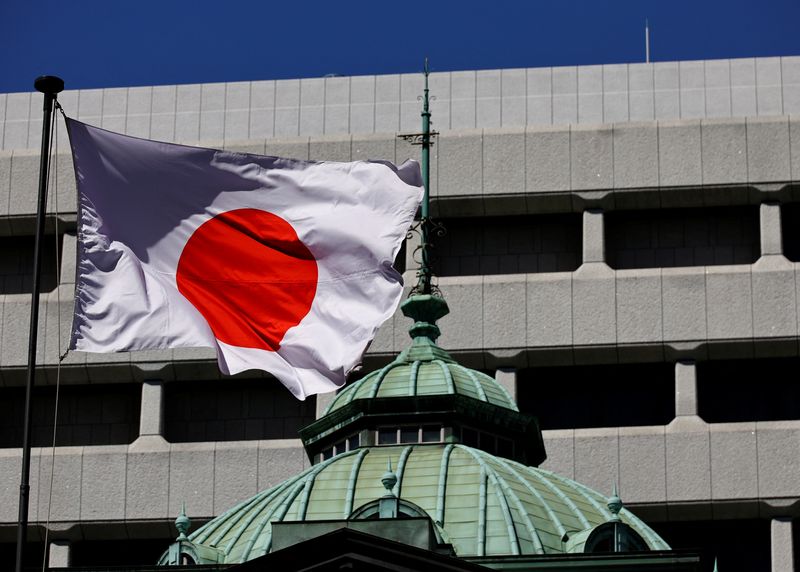By Leika Kihara
TOKYO (Reuters) -Bank of Japan policymakers were divided on how quickly the central bank should raise interest rates further, minutes of the bank's July meeting showed, highlighting uncertainty on the timing of the next increase in borrowing costs.
At the July meeting, the BOJ unexpectedly raised short-term interest rates to 0.25% by a 7-2 vote, taking another step towards phasing out a decade of huge stimulus.
At least two in the nine-member board saw scope to raise rates further, with one saying the BOJ should hike borrowing costs in a "timely and gradual" manner to avoid being forced to do so rapidly later, the minutes showed on Thursday.
Another member said the BOJ must raise rates further once it was confirmed that firms were increasing capital expenditure, wages and prices.
Several others, however, warned against proceeding too quickly in phasing out stimulus.
"Normalisation of monetary policy must not be an end in itself," one member was quoted as saying, adding that the BOJ must monitor various risks and move carefully.
"The BOJ should avoid a situation where market expectations for future rate hikes increase excessively," as inflation expectations have yet to be anchored at its 2% target and prices remained vulnerable to downside risks, another member said.
The remarks underscore the challenge BOJ Governor Kazuo Ueda faces in meeting his pledge to eventually push up interest rates to a neutral level - or a level that neither stimulates nor cools growth.
One member said it was difficult to "automatically" push up interest rates to a set level given high uncertainties in coming up with an estimate on Japan's neutral rate, the minutes showed.
"As such, the BOJ actually has no choice other than to pursue a policy rate path, while examining how the economy and prices respond to changes in short-term rates," the member was quoted as saying at the July meeting.
The BOJ's rate hike in July and Ueda's hawkish comments, coupled with weak U.S. labour market data, triggered a spike in the yen and stock market rout in early August. Since then, BOJ policymakers have stressed the need to take into account the economic fallout from market volatility.
After the BOJ's decision to keep rates steady in September, Ueda repeated that the bank would push up borrowing costs if inflation makes progress in durably hitting its 2% target.
The governor also said the BOJ could afford to spend time gauging how U.S. economic uncertainties affect Japan's fragile recovery, a sign it was in no rush to hike rates further.

Core consumer inflation hit 2.8% in August and has been at or above the BOJ's 2% target for 29 consecutive months.
Japan's economy expanded an annualised 2.9% in the second quarter as steady wage hikes underpinned consumer spending. Capital expenditure continues to grow, though soft demand in China and slowing U.S. growth cloud the outlook for the export-reliant country.